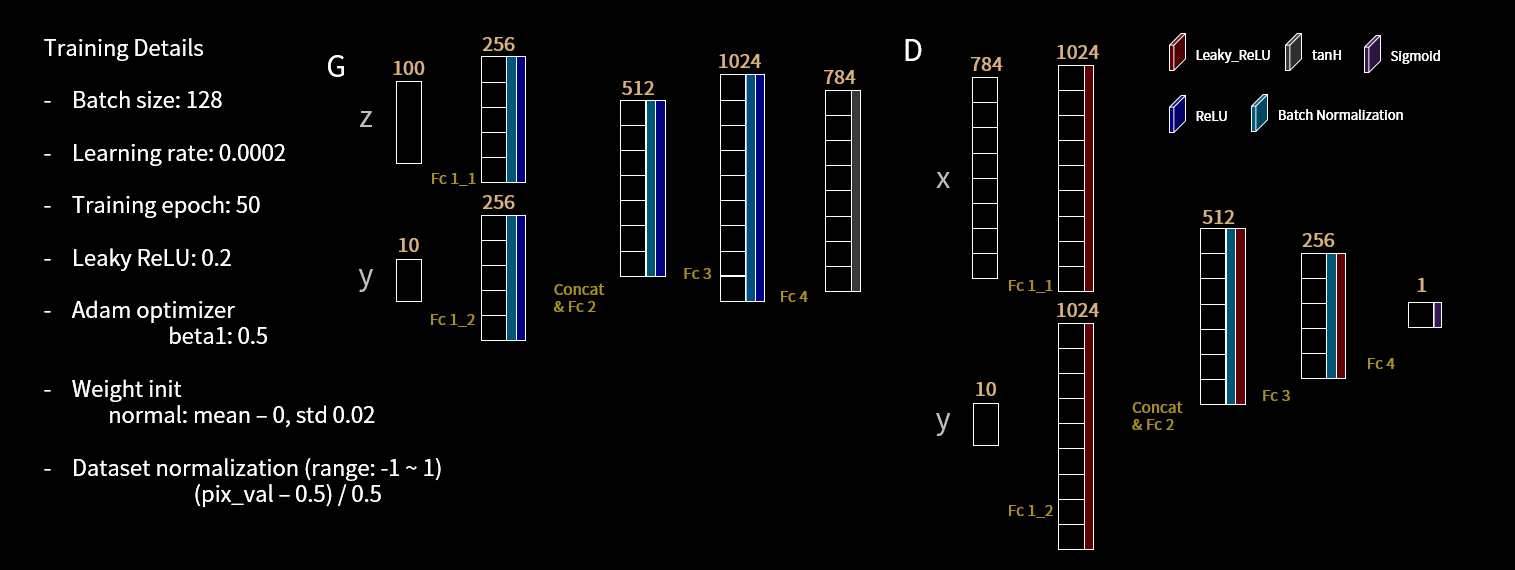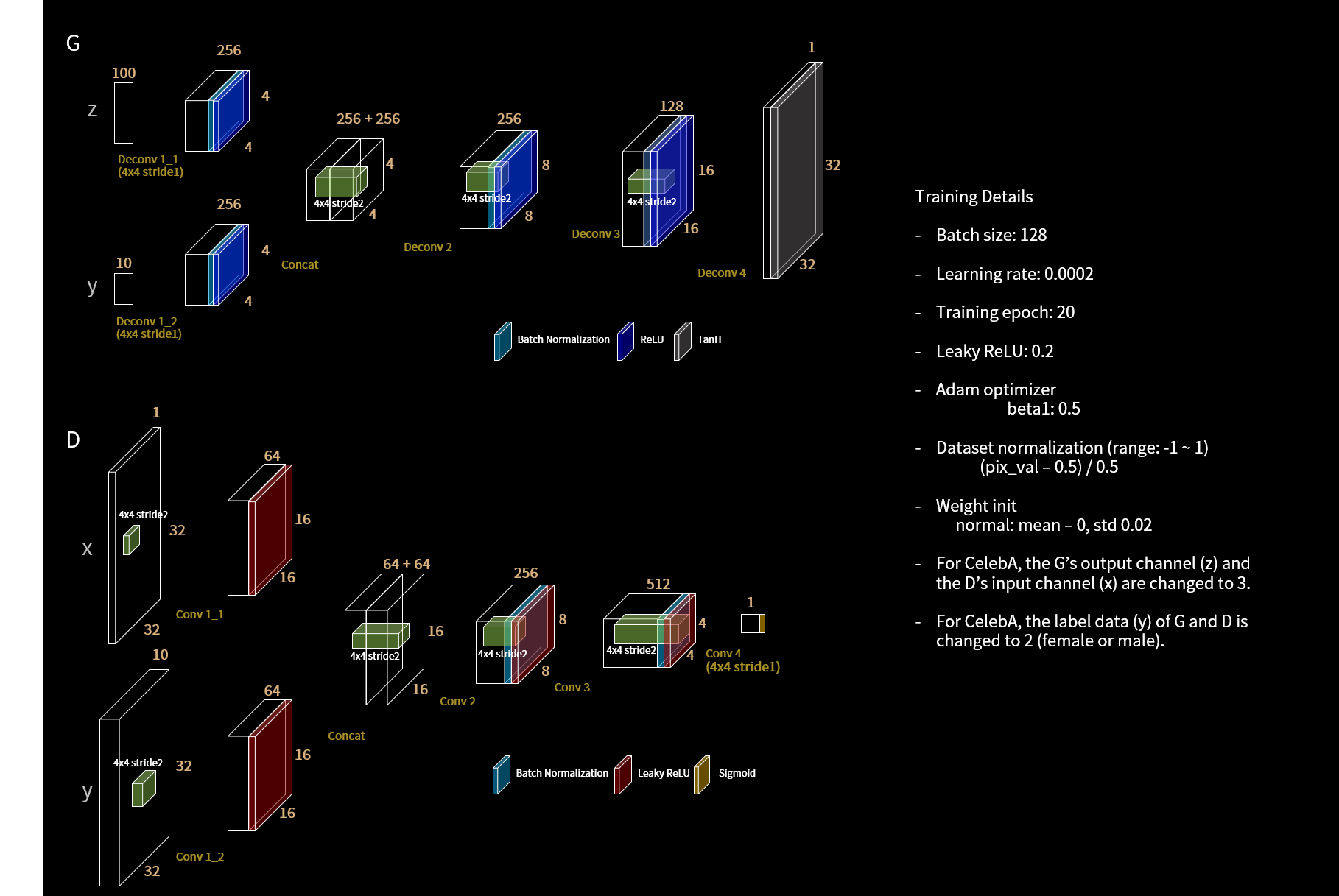Pytorch implementation of conditional Generative Adversarial Networks (cGAN) [1] and conditional Generative Adversarial Networks (cDCGAN) for MNIST [2] and CelebA [3] datasets.
-
The network architecture (number of layer, layer size and activation function etc.) of this code differs from the paper.
-
CelebA dataset used gender lable as condition.
-
If you want to train using cropped CelebA dataset, you have to change isCrop = False to isCrop = True.
-
you can download
- MNIST dataset: http://yann.lecun.com/exdb/mnist/
- CelebA dataset: http://mmlab.ie.cuhk.edu.hk/projects/CelebA.html
- cGAN
- cDCGAN
- Generate using fixed noise (fixed_z_)
| cGAN | cDCGAN |
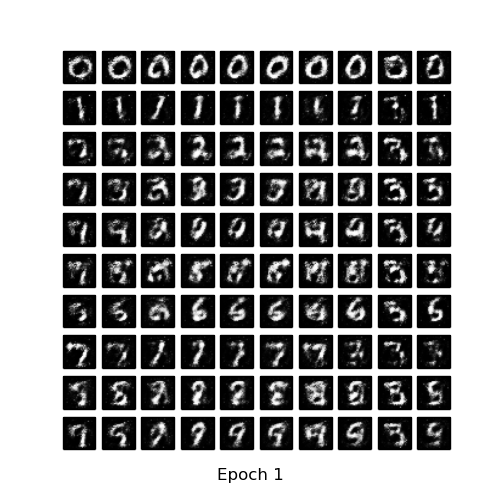
| 
|
- MNIST vs Generated images
| MNIST | cGAN after 50 epochs | cDCGAN after 20 epochs |
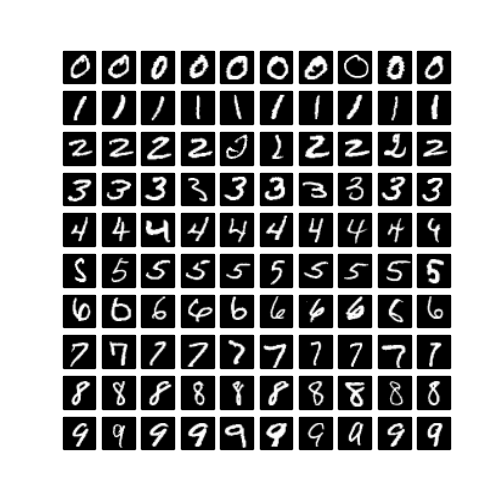
| 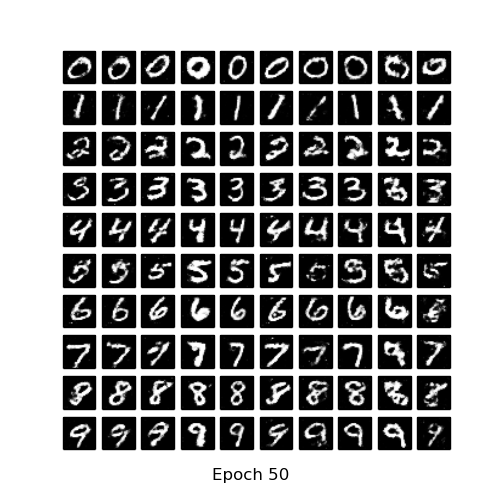
| 
|
- Learning Time
- MNIST cGAN - Avg. per epoch: 9.13 sec; Total 50 epochs: 937.06 sec
- MNIST cDCGAN - Avg. per epoch: 47.16 sec; Total 20 epochs: 1024.26 sec
- Generate using fixed noise (fixed_z_; odd line - female (y: 0) & even line - male (y: 1); each two lines have the same style (1-2) & (3-4).)
| cDCGAN | cDCGAN crop |
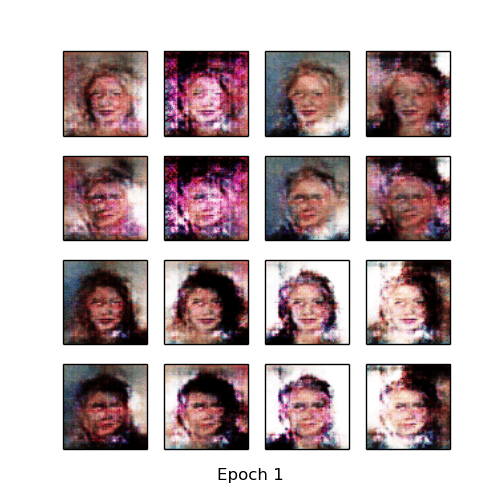
| 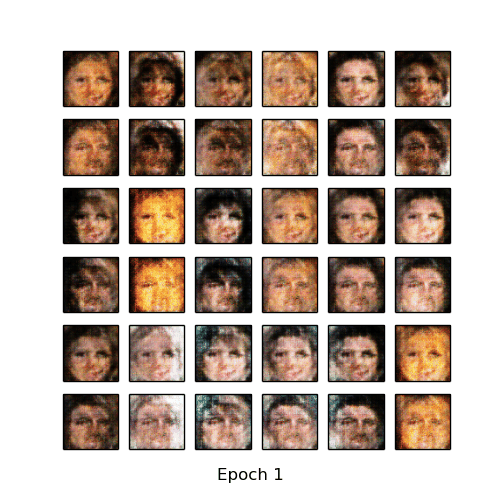
|
- CelebA vs Generated images
| CelebA | cDCGAN after 20 epochs | cDCGAN crop after 30 epochs |

| 
| 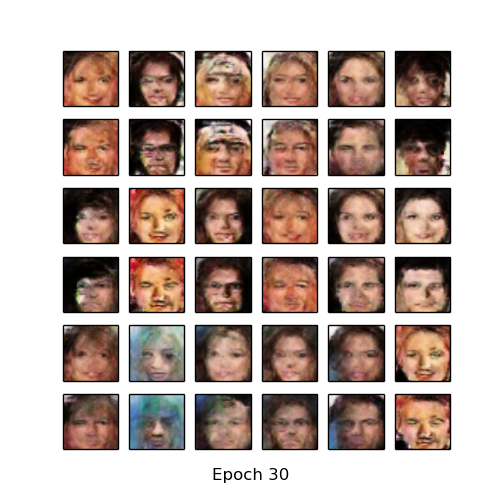
|
- CelebA cDCGAN morphing (noise interpolation)
| cDCGAN | cDCGAN crop |
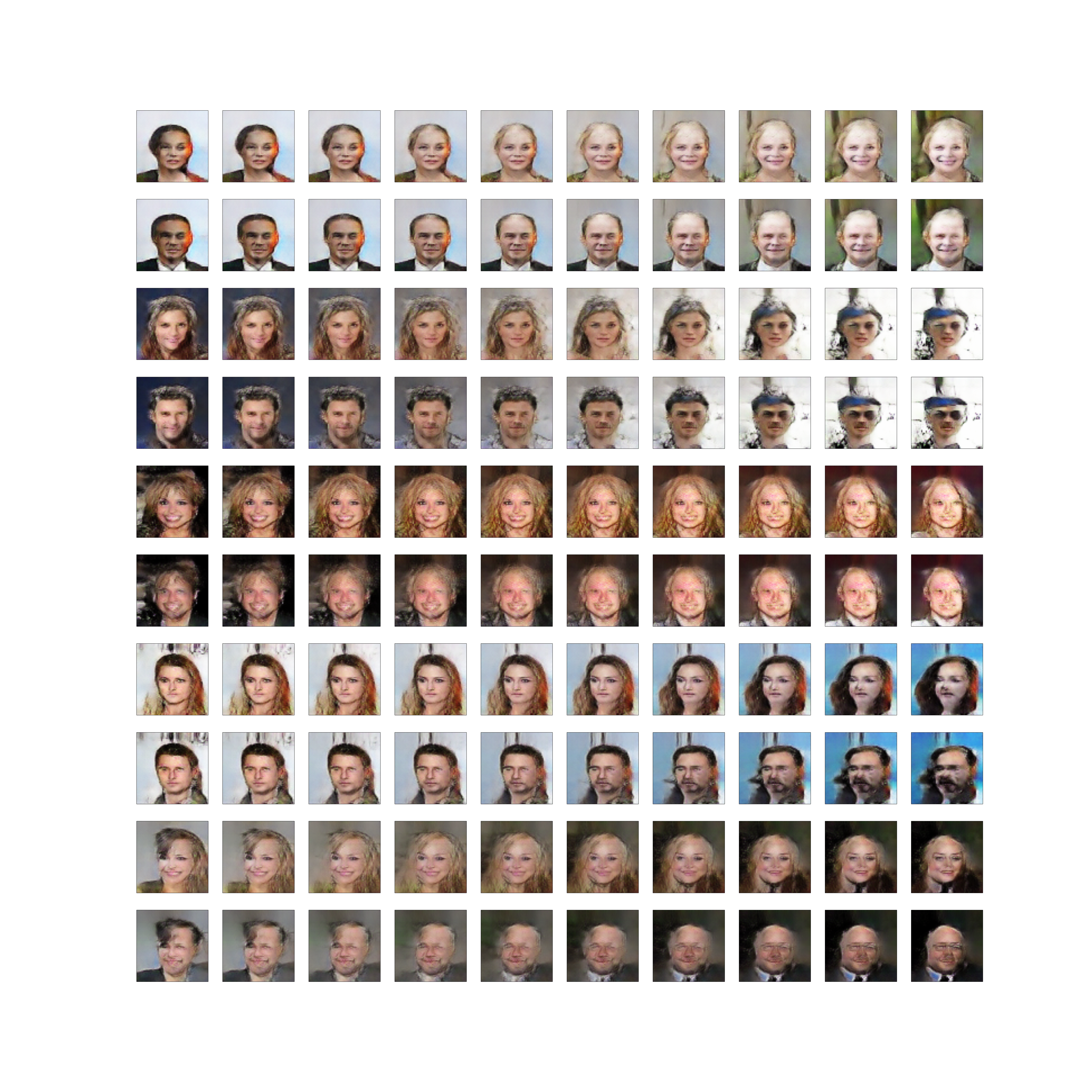
| 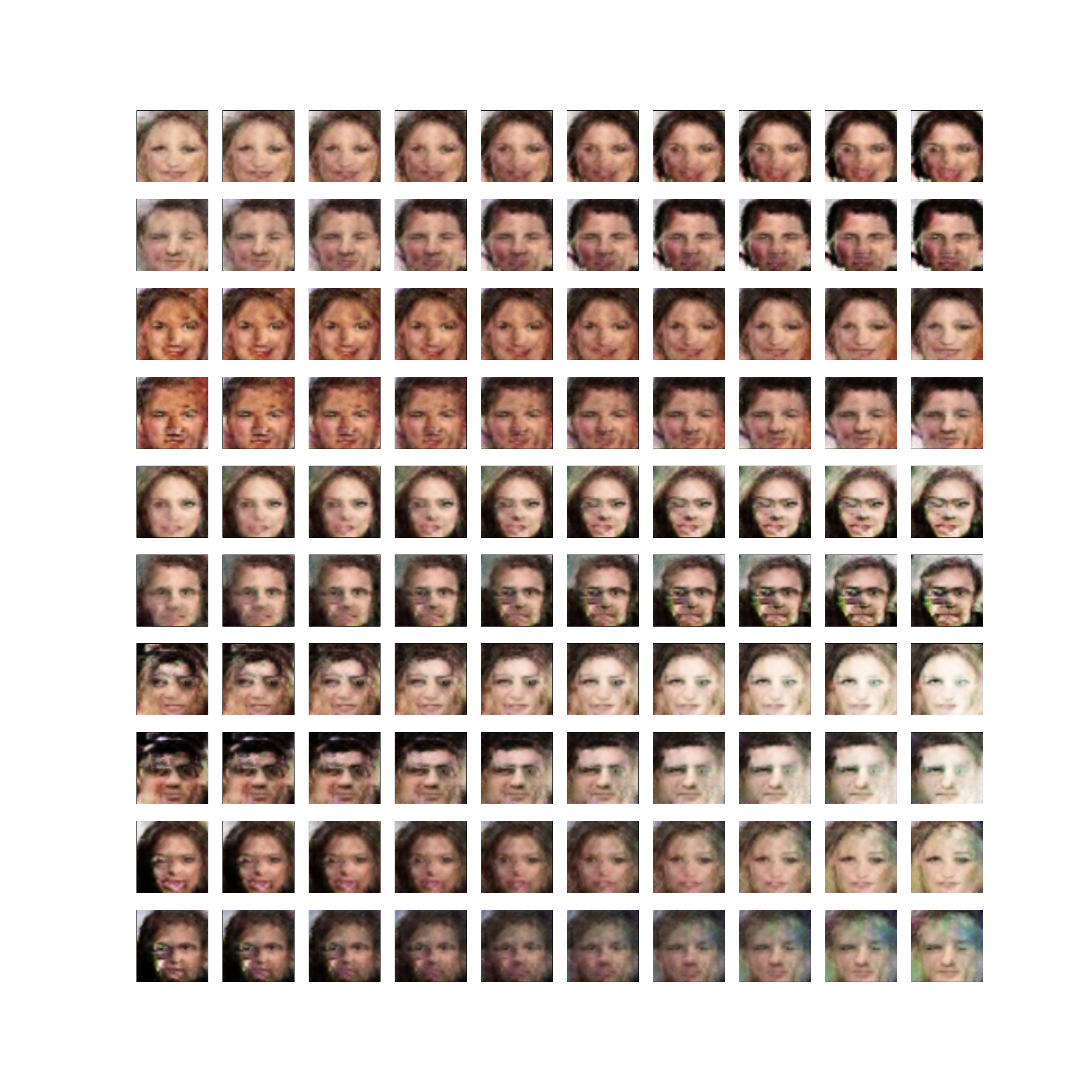
|
- Learning Time
- CelebA cDCGAN - Avg. per epoch: 826.69 sec; total 20 epochs ptime: 16564.10 sec
- Ubuntu 14.04 LTS
- NVIDIA GTX 1080 ti
- cuda 8.0
- Python 2.7.6
- pytorch 0.1.12
- torchvision 0.1.8
- matplotlib 1.3.1
- imageio 2.2.0
[1] Mirza, Mehdi, and Simon Osindero. "Conditional generative adversarial nets." arXiv preprint arXiv:1411.1784 (2014).
(Full paper: https://arxiv.org/pdf/1411.1784.pdf)
[2] Y. LeCun, L. Bottou, Y. Bengio, and P. Haffner. "Gradient-based learning applied to document recognition." Proceedings of the IEEE, 86(11):2278-2324, November 1998.
[3] Liu, Ziwei, et al. "Deep learning face attributes in the wild." Proceedings of the IEEE International Conference on Computer Vision. 2015.
